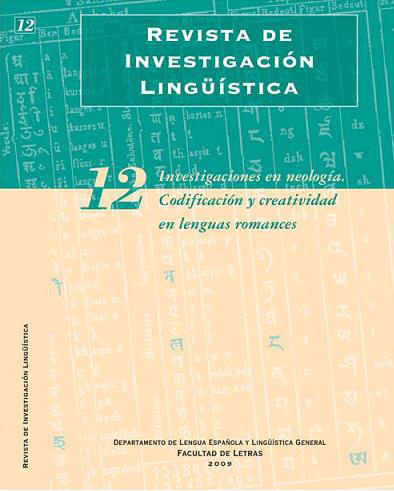Neurología y lingüística: la “teoría de redes relacionales” como una alternativa ante Chomsky
Abstract
The hypotheses of the «faculty of language» (both in «a broad» and «a narrow sense»), the «three factors» which determine language design, and the bases of the Minimalist Program are introduced in the fi rst part of this article. The fundamental critics made by Steven Pinker and Ray Jackendoff, from the inner generative/Chomskyan theory, are analyzed in the second part. The third part is a critic to the Chomskyan program as a whole, from the basis of the one that has already been made by George Lakoff: «the Chomskyan Commitment» is incompatible with the Empiricist Commitment. In the fourth part, it will be argued that there is neurological evidence that can be interpreted as the background of the so called «neurocognitive theory». It will be also argued that this same evidence implies a severe question to the generative theory. The set of conclusions is about the following idea: If the neurological evidence is considered, and if linguists want to assume the Empiricist Commitment, then it seems to be convenient to follow pathways of research different from those ones indicated by Chomsky.Downloads
-
Abstract2022
-
PDF (Español (España))955
The works published in this magazine are subject to the following terms:
1. The Publications Service of the University of Murcia (the publisher) preserves the economic rights (copyright) of the published works, and favors and allows the reuse of same under the license of use indicated in point 2.
2. The papers are published in the electronic edition of the magazine under a Creative Commons Attribution-NonCommercial-NoDerivative 3.0 Spain license (legal text). Papers may be copied, used, disseminated, transmitted and publicly exhibited if the following requirements are met: i) The authorship and the original source of its publication (magazine, editorial and URL of the work) must be cited; ii) The works cannot be used for commercial purposes; iii) The existence and specifications of this user license must be explicitly mentioned.
3. Self-archiving conditions. Authors can electronically disseminate pre-print versions (version before being evaluated) and / or post-print versions (version evaluated and accepted for publication). This makes possible its circulation and diffusion earlier and with it a possible increase in its citation and reach among the academic community. RoMEO color: green.









